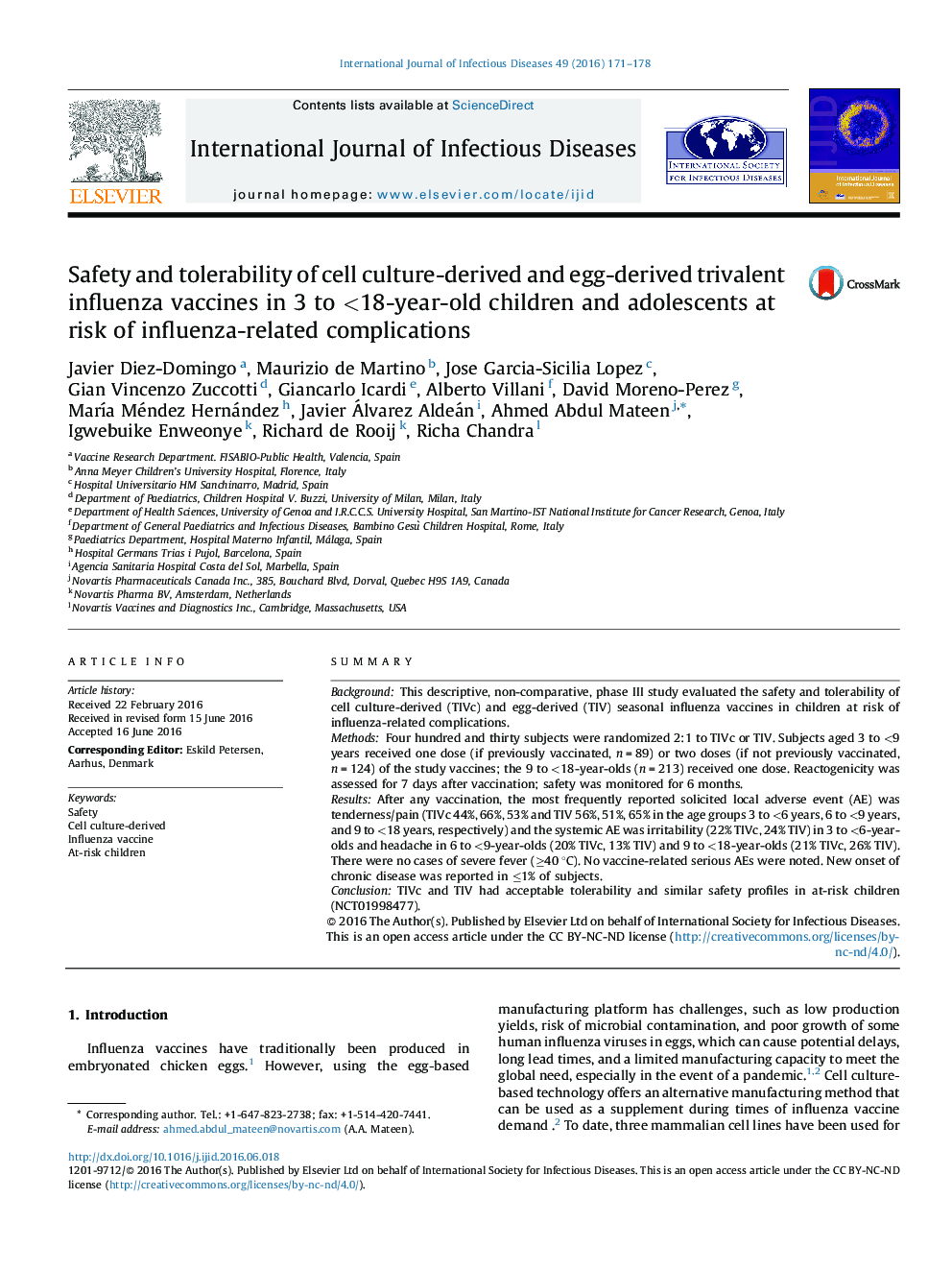| Article ID | Journal | Published Year | Pages | File Type |
|---|---|---|---|---|
| 3361626 | International Journal of Infectious Diseases | 2016 | 8 Pages |
•This is the first study to assess the safety of cell-derived vaccine in at-risk children.•The cell culture-derived (TIVc) and egg-derived (TIV) trivalent influenza vaccines were generally well tolerated in children at risk of influenza.•The TIVc and TIV had similar safety profiles in children at risk of influenza.•There were no cases of severe fever or serious adverse events (AEs) with either TIVc or TIV.•The most common solicited AEs were pain, irritability, and headache.
SummaryBackgroundThis descriptive, non-comparative, phase III study evaluated the safety and tolerability of cell culture-derived (TIVc) and egg-derived (TIV) seasonal influenza vaccines in children at risk of influenza-related complications.MethodsFour hundred and thirty subjects were randomized 2:1 to TIVc or TIV. Subjects aged 3 to <9 years received one dose (if previously vaccinated, n = 89) or two doses (if not previously vaccinated, n = 124) of the study vaccines; the 9 to <18-year-olds (n = 213) received one dose. Reactogenicity was assessed for 7 days after vaccination; safety was monitored for 6 months.ResultsAfter any vaccination, the most frequently reported solicited local adverse event (AE) was tenderness/pain (TIVc 44%, 66%, 53% and TIV 56%, 51%, 65% in the age groups 3 to <6 years, 6 to <9 years, and 9 to <18 years, respectively) and the systemic AE was irritability (22% TIVc, 24% TIV) in 3 to <6-year-olds and headache in 6 to <9-year-olds (20% TIVc, 13% TIV) and 9 to <18-year-olds (21% TIVc, 26% TIV). There were no cases of severe fever (≥40 °C). No vaccine-related serious AEs were noted. New onset of chronic disease was reported in ≤1% of subjects.ConclusionTIVc and TIV had acceptable tolerability and similar safety profiles in at-risk children (NCT01998477).
